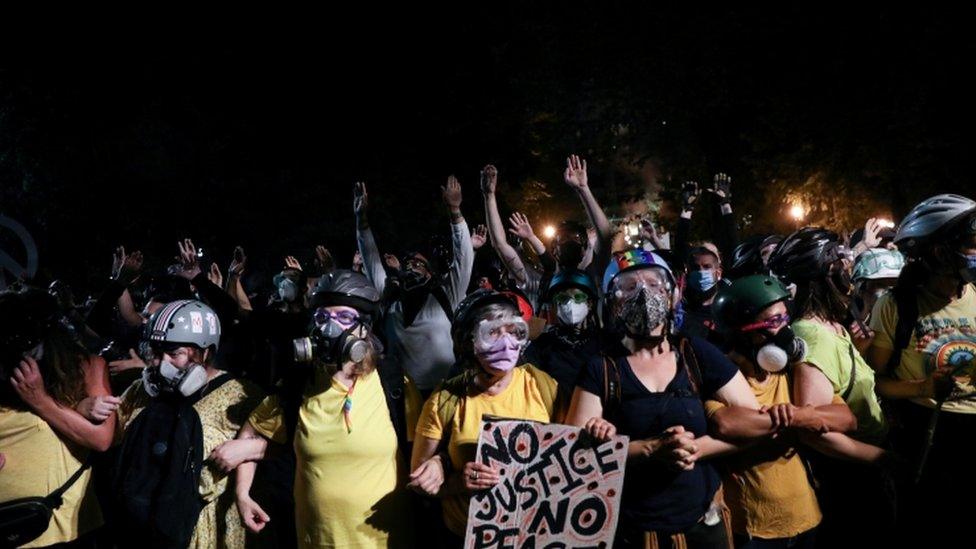New York among three 'anarchist' cities named by White House to lose funds
- Published
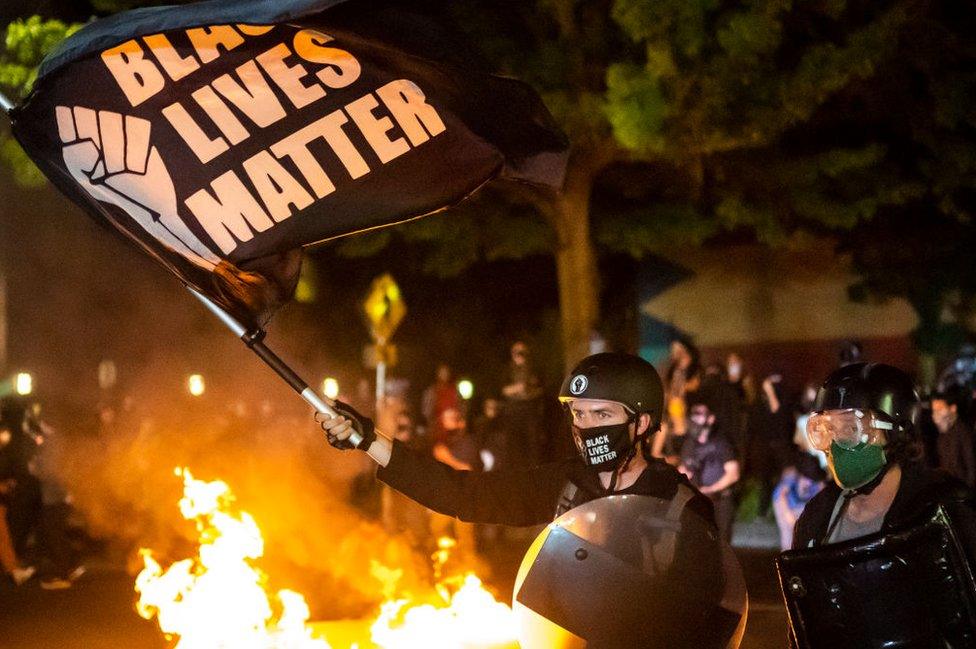
Protests have been continuing in Portland, entering their third consecutive month in September
The Trump administration has named three cities that could lose federal funding after the White House accused them of tolerating crime.
New York City, Portland and Seattle are on the list of "anarchist cities" that Trump officials say have failed to stem crime linked to a summer of protests.
It follows a memo from Mr Trump earlier this month, threatening the move.
The mayors of the cities have promised to sue, calling Mr Trump's move a political stunt.
A statement from the justice department on Monday laid out recent crime rates in the cities and how their police responded.
"We cannot allow federal tax dollars to be wasted when the safety of the citizenry hangs in the balance," Attorney General William Barr said in the statement.
He also called on Portland, Seattle and New York City to "reverse course and become serious about performing the basic function of government and start protecting their own citizens".
The department statement noted that these cities were highlighted as they meet key criteria, such as forbidding "the police force from intervening to restore order amid widespread or sustained violence or destruction", as well as seeking to disempower or defund police. Refusing to accept federal law enforcement assistance is also a factor.
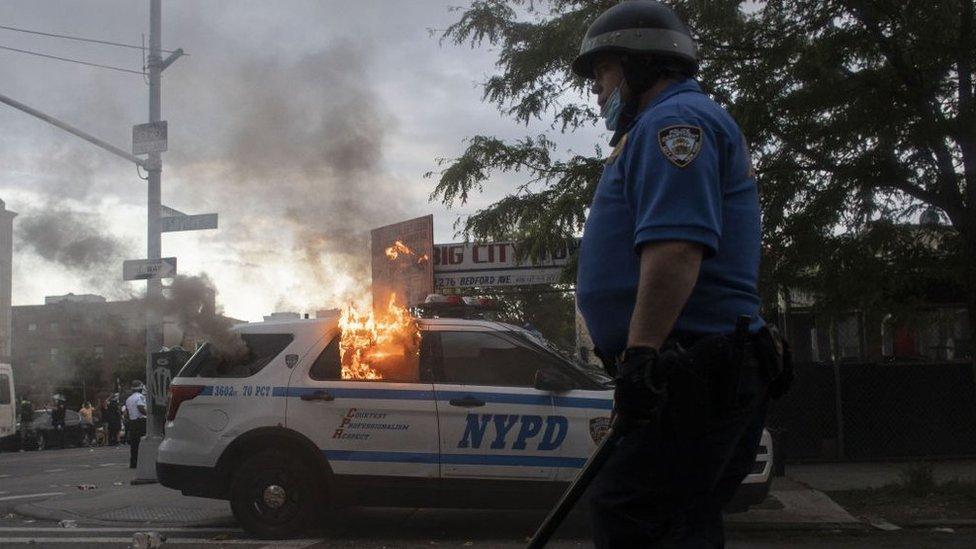
Police cars in New York City were torched in May following the death of George Floyd
All three cities have seen major protests since the death of unarmed black man George Floyd in May.
It remains unclear what federal funding may be cut from the cities. CNBC reports, external that some of the funds targeted by Mr Trump's memo comprise a large portion of New York City's annual budget, which has already been stretched thin by the pandemic.
In a joint statement, the mayors of Portland, Seattle, New York and Washington DC - which was on a shortlist of "anarchist cities" but was not included in Monday's decision - accused Mr Trump of "playing cheap political games with congressionally directed funds".
The mayors called the decision "thoroughly political and unconstitutional" and accused the Trump White House of "shirking responsibility and placing blame elsewhere to cover its failure".
Violent crimes have generally declined in US cities since the 1990s, but have risen steeply in the past year in several cities including Philadelphia, Chicago and New York.
What is happening in those cities?
The move comes amid a summer of unrest sparked by protests against the police killing of black Americans. Some of the protests have led to major police reforms around the country.
In New York City, the rate of shootings and murders has skyrocketed as youth programmes and other social organisations have been placed on hold due to the pandemic. Cases of looting and vandalism have also made national news as protests for racial justice have sometimes turned violent.
Reacting to the justice department announcement on Monday, New York City Mayor Bill de Blasio called the decision "another one of President Trump's games", adding: "It's insulting to the people of New York City and his [Mr Trump's] effort to withhold our funding is unconstitutional."
Seattle permitted the establishment of a so-called "autonomous zone" where protesters forbade police from entering an area near the city centre for nearly a month. The zone was dismantled in early July after several shootings. Nightly protests have continued since.
Portland, Oregon, has often been invoked by Mr Trump as a "Democrat-run" city that has supposedly allowed violence. Protests have continued nightly there for over 100 consecutive days, sometimes devolving to violence and vandalism as protesters fight with police.
- Published3 September 2020
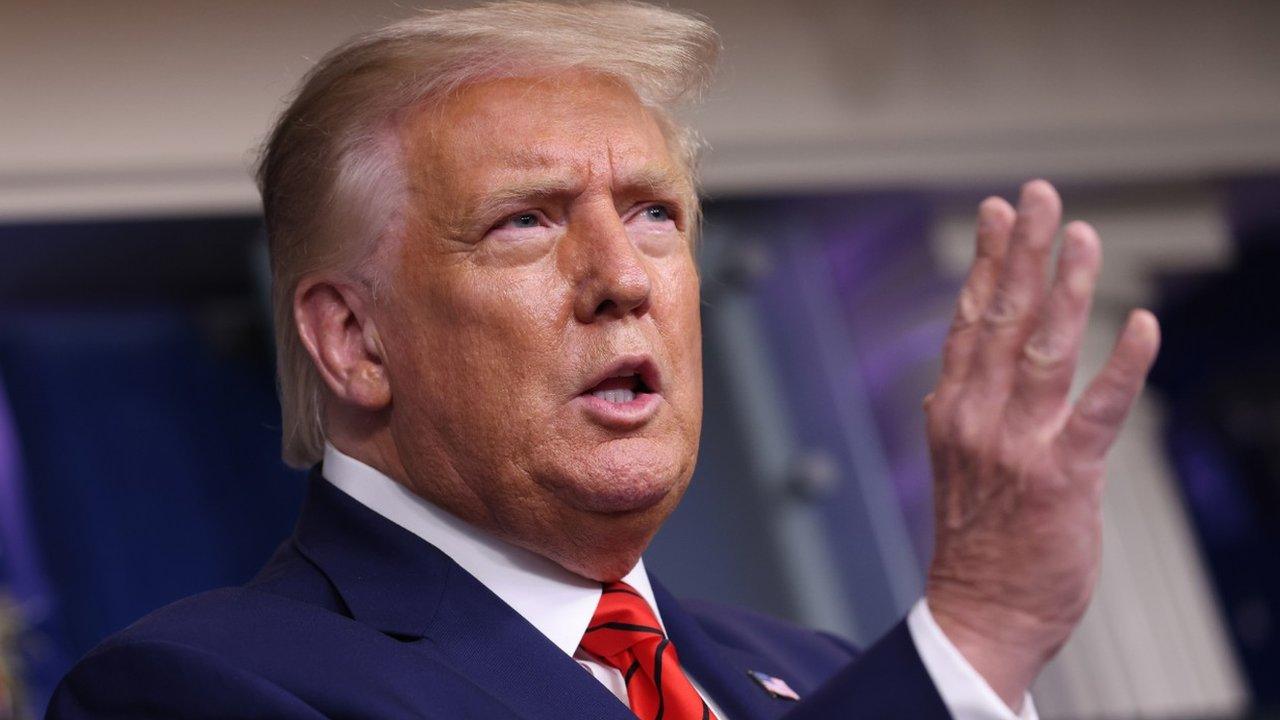
- Published1 September 2020
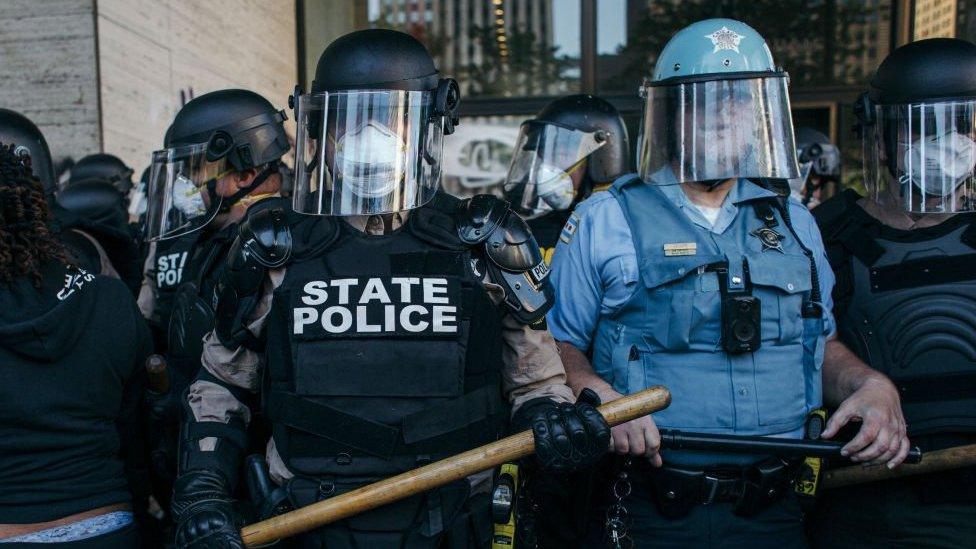
- Published20 July 2020
